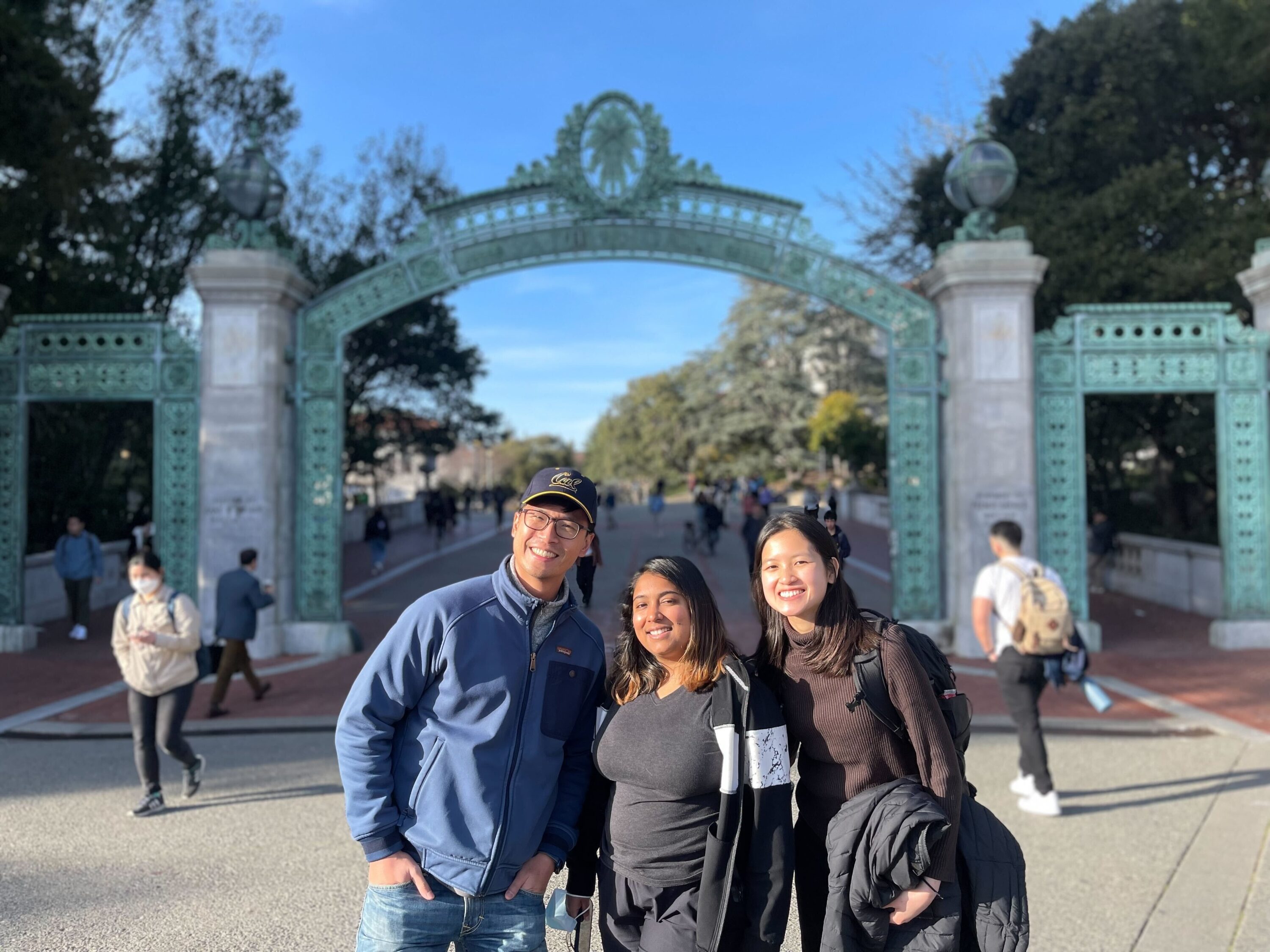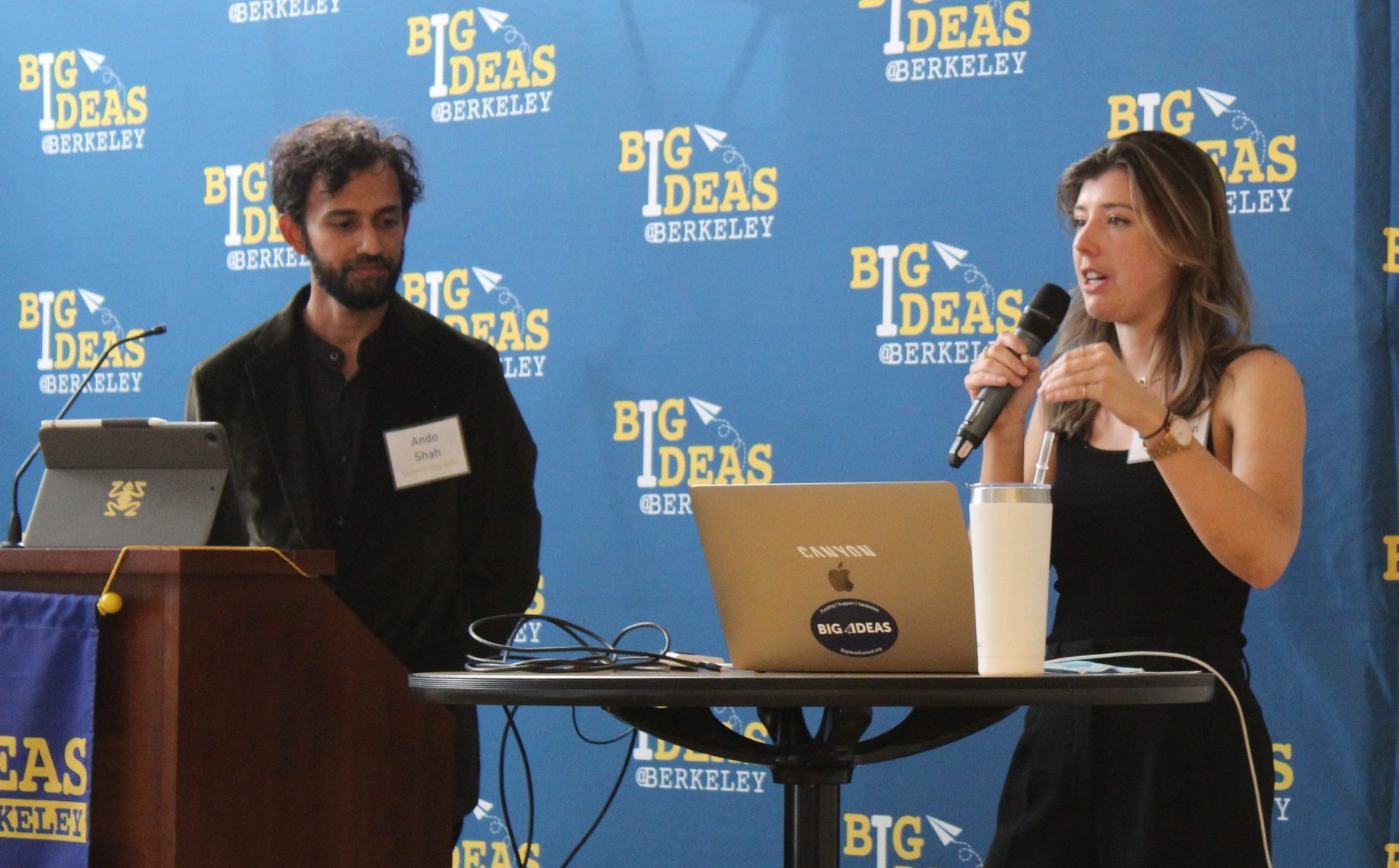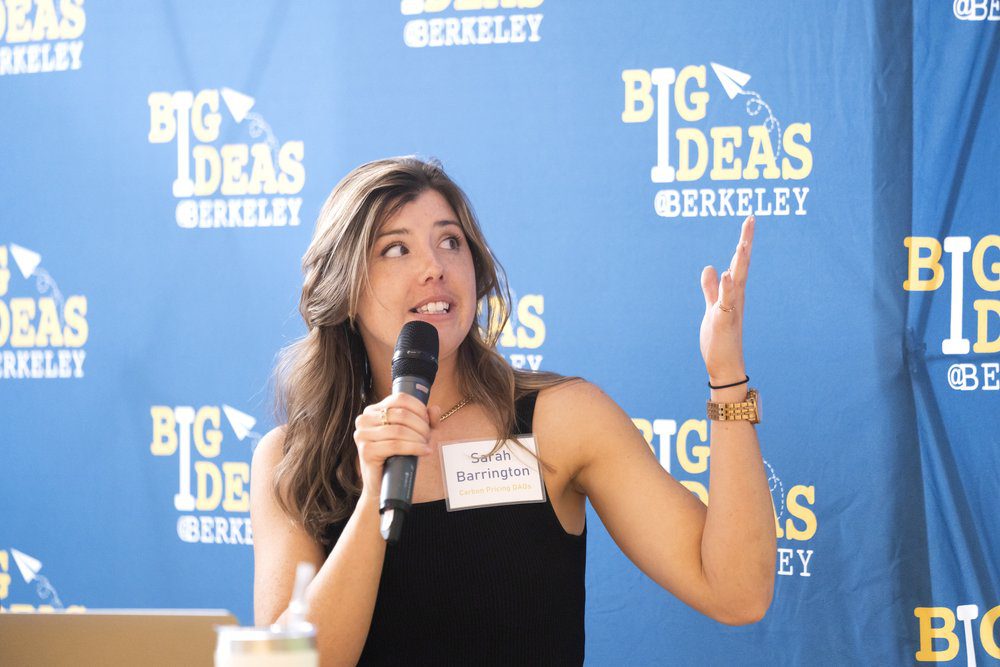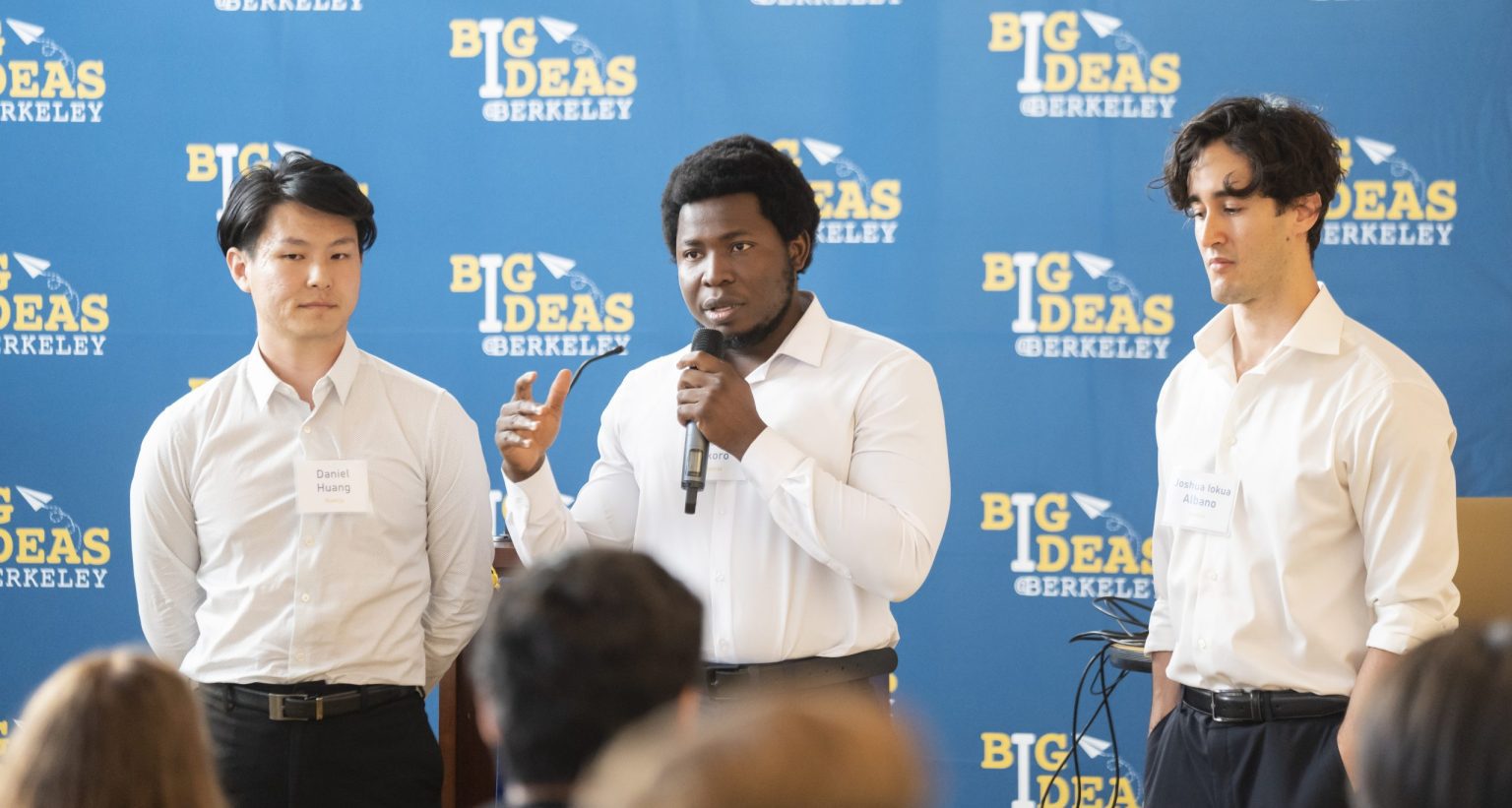2023 Winners

Team: Guan-Lun Liao, Gurpreet Kaur Khalsa, Khanh Thai
2ndWind is a highly-automated multifaceted solution that introduces an easier and more inclusive ownership transition for small and midsize businesses (SMBs). Through fractional ownership, 2ndWind lowers the investment requirement and allows financially disadvantaged groups to co-own SMBs with retiring owners; thus, facilitate business transition for owners, offer financial inclusion for underserved buyers to this high-capital barrier to enter private equity market, and safeguard a sustainable workforce by preventing SMBs from shutting down. 2ndWind member, Guan-Lun, faced pressure to take over the family business and began brainstorming 2ndWind as he interned at a venture capital firm. Through connecting with Gurpreet and Khanh, the trio brought 2ndWind to life. Within the next year, they plan to have validated the problems, overlook several SMBs transitions, and complete their MVP platform.
Currently, servicers in the SMB ownership transition space target traditional buyers and sellers–often wealthy individuals with capital and loan support. Furthermore, other close competitors help SMB transition to employees, but mainly serve businesses with 10-15 employees while nearly 80% of American businesses with less than 10 employees are excluded. Such companies do not currently enable financially disadvantaged communities to participate.
As diverse, entrepreneurial changemakers, 2ndWind envisions a built marketplace and to prove 2ndWind’s values to a large community. When not working, the trio enjoy hiking and exploring different restaurants in Berkeley!
Team: Alejandro Carrillo Teniente, Héctor González
Climate Resilience Platform will provide a parametric insurance product and climate adaptation training to low income farmers and micro, small, and medium enterprise (MSMEs) that can disproportionately suffer from climate change in Mexico. Following professional experiences working respectively as a public policy consultant (Teniente) and as a financial analyst (González), the team members developed the idea for Climate Resilience Platform by applying what they learned in development, climate change, and behavioral change. Three areas the team is seeking improvements in are sensor and blockchain integration, a business model to create user-centered products, and a better understanding of novel climate risks assessment methodologies and utilization of data.
The current solutions in the insurance supply chain are piloting different technologies and integrations, but Climate Resilience Platform puts emphasis on not only technological advancement, but social change.
In 5 years, this initiative will be a nonprofit organization offering comprehensive climate insurance products for low-income users. As a resourceful, motivated and radical team, Climate Resilience Platform aims to support the underprivileged through their unique platform. The duo enjoy cycling, music, cocktails and climbing when not in the workplace.
2022 Winners

Team:
We need to set a robust way to price carbon dioxide to allow markets to price in the cost of climate change. The most accepted method to price carbon employs complex models that are owned and run by scientists and policymakers in silos. Organizations, citizens and stakeholders don’t have access to them, and these models static data. Carbon pricing DAO’s plans to solve this issue by enabling open access to these models by cloud-hosting them, and providing APIs for web2 and web3 access. Additionally, Carbon Pricing DAOs will also build realtime climate oracles, that will assess the earth state, verify them and cryptographically sign this crucial data to these models, so that they’re up-to-date. Furthermore, it will develop a DAO creation tool that allows any organization to setup their own model, and achieve consensus on price-setting through this DAO. In conclusion, by allowing organizations to accurately set carbon Pricing for themselves, we will enable CO2 to be treated as a precious asset in the climate crisis.

Team: Sarah Barrington, Tara Margulies
NFTs use blockchain to prove the originality of any online content, and thus have the potential to revolutionize how we make and invest money online. Yet, women and minority groups are once again excluded, with a 95% male creator market who receive 77% of all NFT revenue, and males accounting for 3x the ownership of non-males. The NFT Inclusion project aims to create an NFT marketplace that focuses on principles of access, education and community building for a previously excluded voice in both the technological and financial ecosystems. The goal is not to encourage women and minority groups to break into a world that isn’t designed for them, nor are we looking to reinvent the wheel. Instead, it is to take a model that we’re familiar with (ie. online shopping for big fashion retailers like ASOS) and apply it to invite a wider audience into the world of buying and minting NFTs.

Sotira is a SaaS platform for sellers and resellers who sell products through Instagram or on eCommerce platforms like Etsy, Poshmark, Depop, Shopify, StockX and GOAT. This platform allows users to add all their income streams on one dashboard, so they can analyze and compare growth for each of them. Some features include eCommerce income stream management, financial tracking, expense tracking, sales logging, profit optimization and profit forecasting. Additionally, it also helps sellers to easily create and mint NFTs to promote their small businesses and online stores and provides tools to help sellers analyze payments in different cryptocurrencies. Ultimately, Sotira plans on partnering with exchange platforms to enable sellers to invest profits from their eCommerce businesses into cryptocurrencies. By doing this, Sotira aims to help sellers and resellers, many of which are women, have a clear view into how much profit they are actually earning so they can optimize their income streams and price products more optimally.

